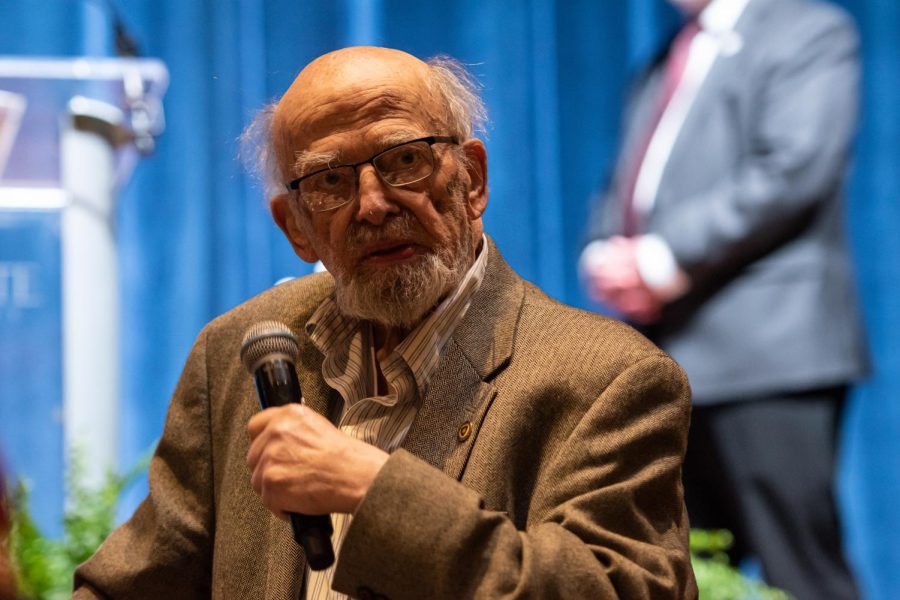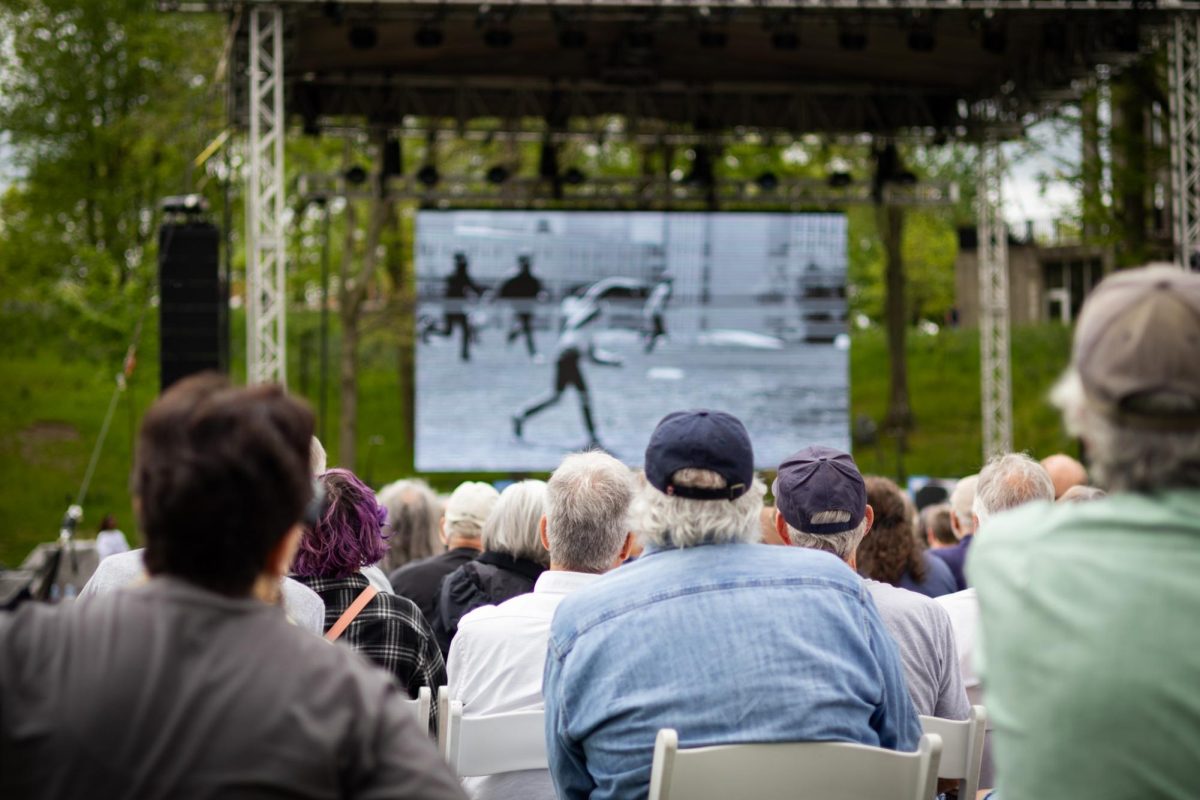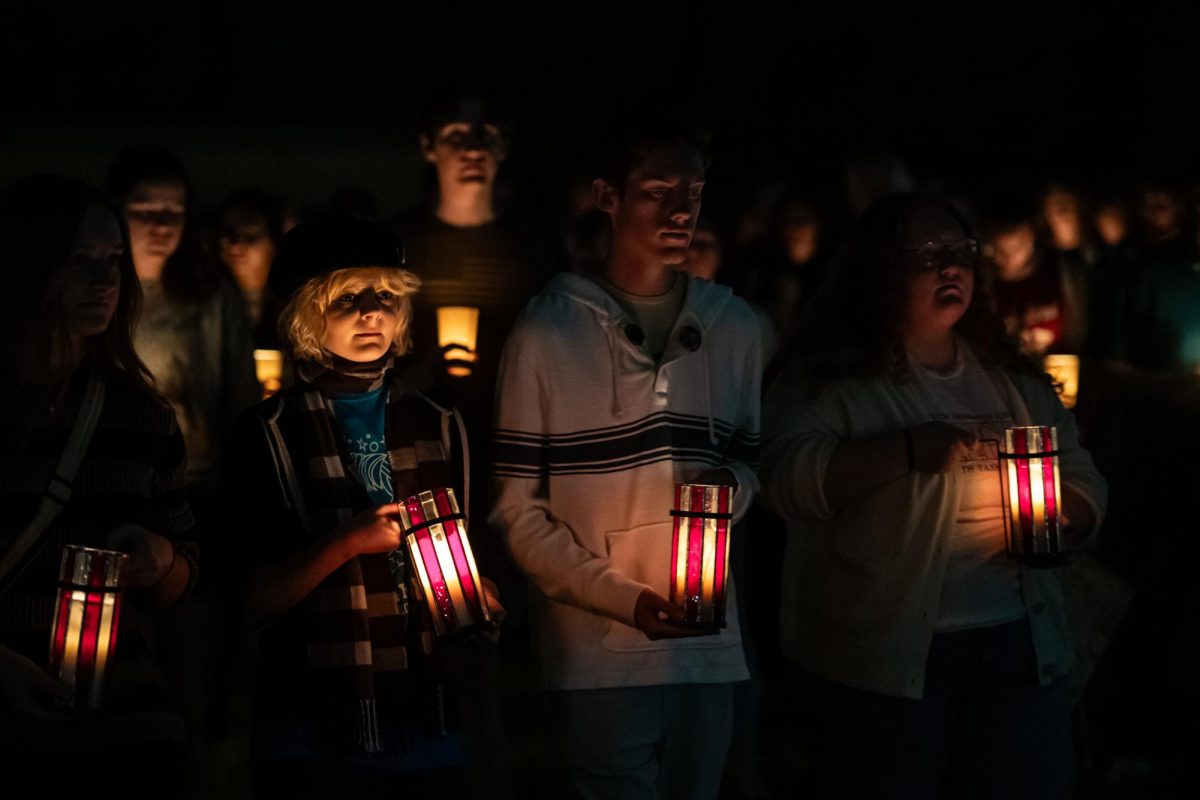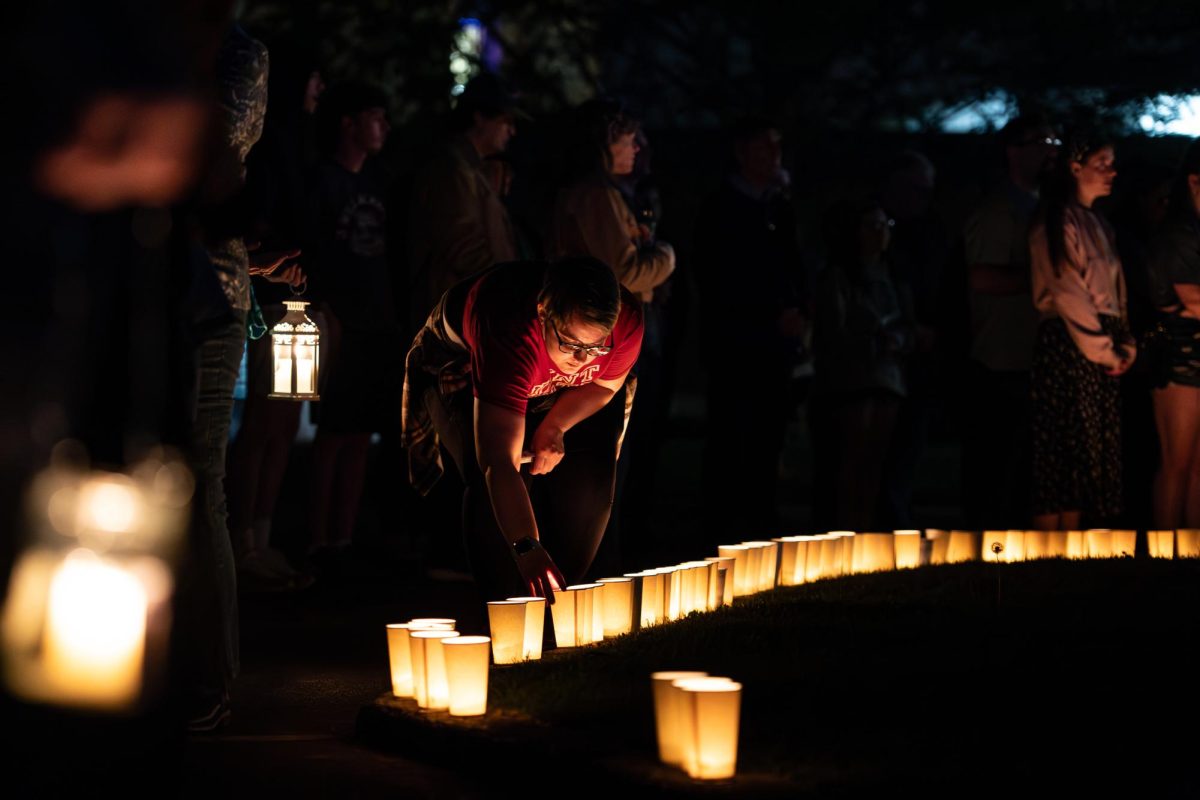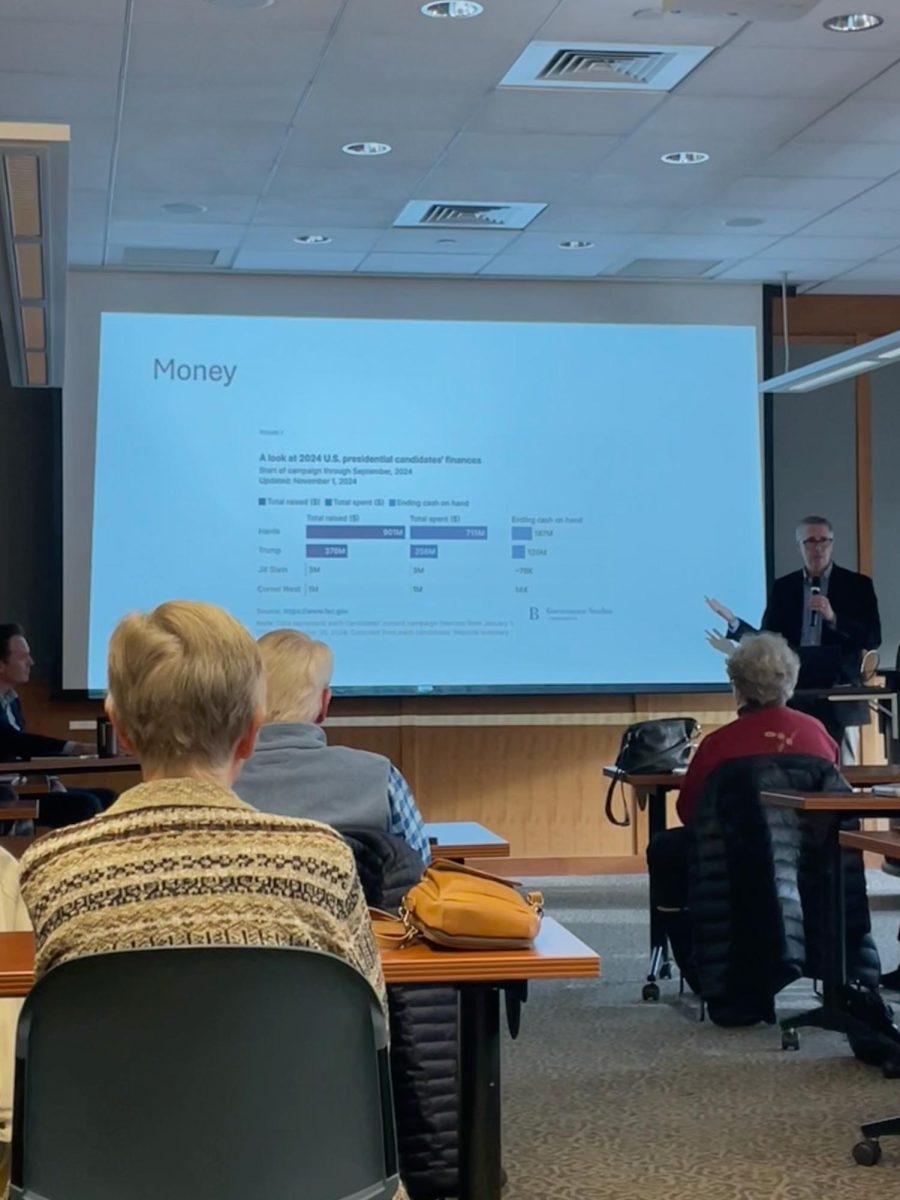Research and impressions about remembering May 4, 1970, and embracing the history it left behind were shared during the Jerry M. Lewis Lecture Series Friday afternoon.
To start the lecture, university President Todd Diacon remarked on the initial shootings and the meaning of commemorating the day.
During his opening remarks, Diacon mentioned the Hard Hat Riot, which took place four days after the May 4 shootings. On Wall Street, students were attacked by nearby construction and office workers as they gathered to protest the Vietnam War.
Diacon said this reminded him of the work done by the university’s faculty marshals.
“I’m bringing it up because the violence of that day is another reminder of the important work Kent State faculty marshal performed on May 4, 1970,” Diacon said.
Faculty marshals are made up of volunteer university faculty members who complete annual training with the purpose of acting as liaisons between administration and students. They attend university gatherings, such as protests.
The lecture series was created in 2022 to honor Jerry Lewis, a current professor emeritus and former faculty marshal in 1970, and invite university faculty members to share their related research.
As a faculty marshal, Lewis witnessed the May 4 shootings firsthand and subsequently dedicated his time to participating in and leading research and lectures on the event.
Lewis could not attend the lecture in person this year but commented on the event in a video played during the series.
“Research about May 4 is crossing generational and disciplinary boundaries,” Lewis said. “This includes students of all ages, from high school students to current faculty.”
Each year, faculty members are encouraged to submit proposals to give a lecture at the series, and this year Chris Post, a Stark regional campus professor in the Department of Geography, was selected to speak.
“I’ve been involved in several aspects of commemorating May 4, and for much of what I will share today, over the past three years I have been utilizing materials from the wounded student markers to reconstruct and document that process,” Post said.
After Post shared his efforts with the audience, he also summarized how he felt May 4 has been treated across campus over the years.
“While the university does commemorate what occurred on May 4, the history of that commemoration is bumpy and expresses both past administrative ambivalence and more recent embrace,” Post said.
Kayla Gleason is a beat reporter. Contact her at kgleaso1@kent.edu.


